How will Pope Francis deal with abuse in the Catholic Church?
- Published
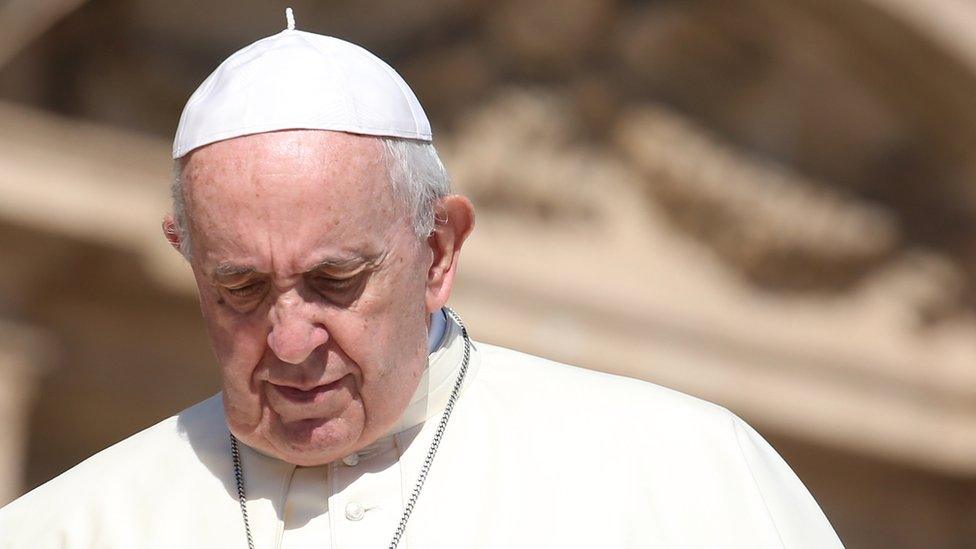
In an effort to deal with the sex scandals rocking the Roman Catholic Church, the Pope has convened an extraordinary summit of bishops in Rome.
This follows his recent, unprompted, admission that priests had exploited nuns as "sex slaves" at a convent in France.
Pope Francis decided to call this global conference after discussions with the so-called C9. This is the group of nine cardinal advisers who were appointed soon after Francis was elected.
The Pope is under serious pressure to provide leadership and generate workable solutions to what is the most pressing crisis facing the modern Church.
Stories of abuse have emerged in every corner of the world. And the Church has been accused of covering up crimes committed by priests, leaving its moral authority in tatters.
Pope Francis must also confront the assumptions, attitudes and practices that have allowed a culture of abuse to flourish. The extent of this challenge may prove overwhelming.
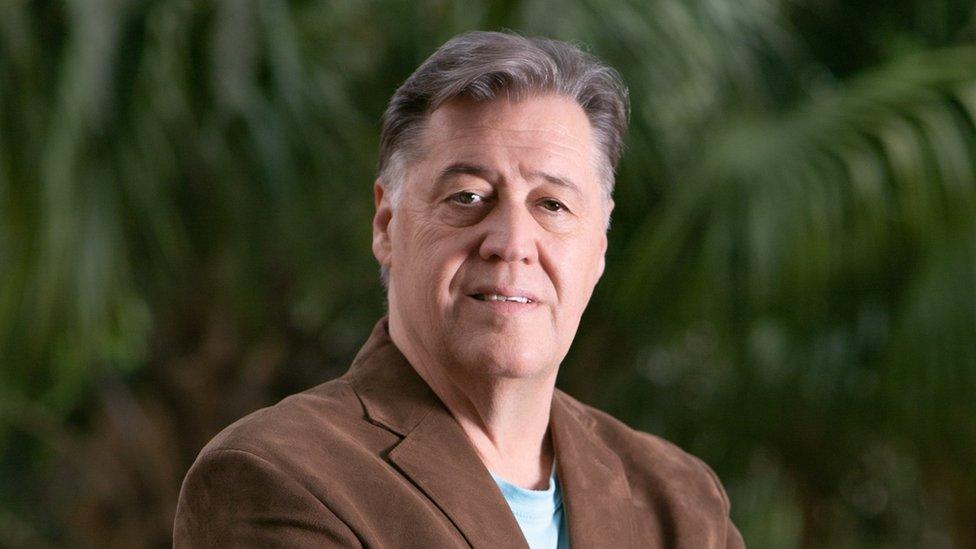
Journalist Jason Berry was one of the first people to expose the extent of abuse in the Church
The summit, to be attended by the heads of all national bishops' conferences from more than 130 countries, is only the beginning of an attempt to address a sickness that has been poisoning the Church since at least the 1980s.
When Jason Berry, a local newspaper reporter in the US state of Louisiana, began following the story of an abusive priest called Father Gilbert Gauthe, he did not expect his work to ignite an international scandal that is still ablaze more than 30 years later.
Mr Berry's work led to the 1992 book Lead Us Not Into Temptation, based on civil legal actions that the Church settled with multiple accusers towards the end of the 1980s.
In 2002, Mr Berry's work was followed by an investigation at the Boston Globe newspaper that provided an even more extensive narrative of clergy abuse and cover-up. The journalists won a prestigious Pulitzer Prize and their work was dramatised in the film Spotlight.
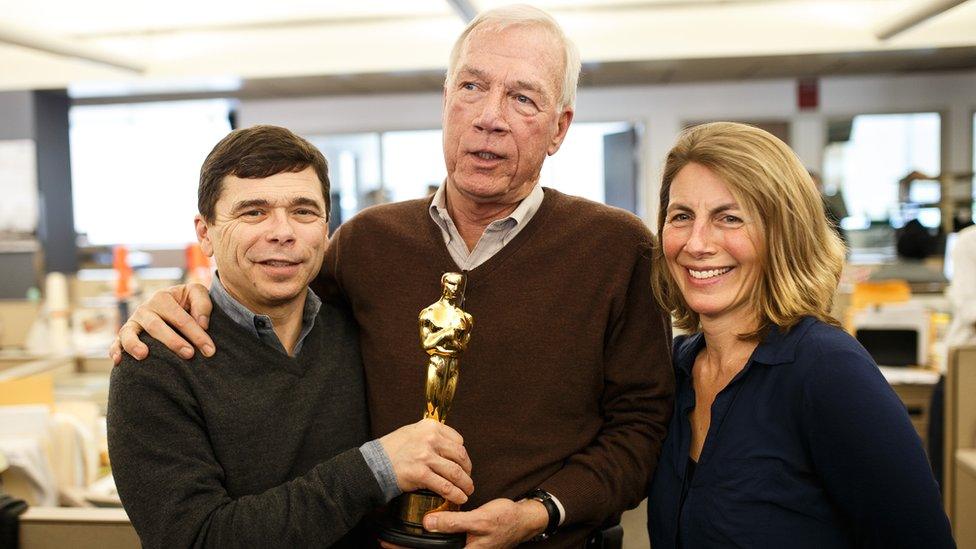
The work of the Boston Globe's Michael Rezendes, (left), Walter V Robinson, and Sacha Pfeiffer (right) led to the Academy Award-winning film Spotlight
The scandals kept coming.
Consider six of the eight Roman Catholic dioceses in the state of Pennsylvania, which were the subject of scrutiny last year.
The State Attorney, Josh Shapiro, subpoenaed and reviewed half a million internal diocesan documents. Dozens of witnesses gave evidence, some clergy admitted to their offences. Mr Shapiro's report, published in December, was devastating.
"Over 1,000 child victims were identifiable from the Church's own records," he wrote, with "credible allegations against over 300 predator priests".
The report, which is more than 1,000 pages long, covers the past 70 years - and the examples are horrific.
In the diocese of Scranton, a priest raped a girl and when she became pregnant arranged for an abortion. The priest's line manager, his area bishop, wrote a letter.
"This is a very difficult time in your life and I realise how upset you are," he wrote. "I too share your grief."
The letter was not addressed to the girl, but the priest.
In another diocese, a priest visited a seven-year-old girl in hospital after she had undergone a tonsillectomy - and raped her.
In another, a priest abused a nine-year-old and then rinsed out the boy's mouth with holy water "to purify him".
The report concluded that predatory paedophiles had been able to abuse children because the Church hid their activities by moving accused clerics on to other parishes and not reporting their offences to the police.
Rape claims
The Rt Rev Franco Mulakkal had risen from small-town Kerala, on India's south-west coast, to become a bishop in the north of the country.
He was arrested in September 2018, following allegations from a nun that he regularly visited her convent in order to rape her. The bishop, who has temporarily stood down from ministry, has denied all the charges, telling reporters the accusations are "baseless and concocted".
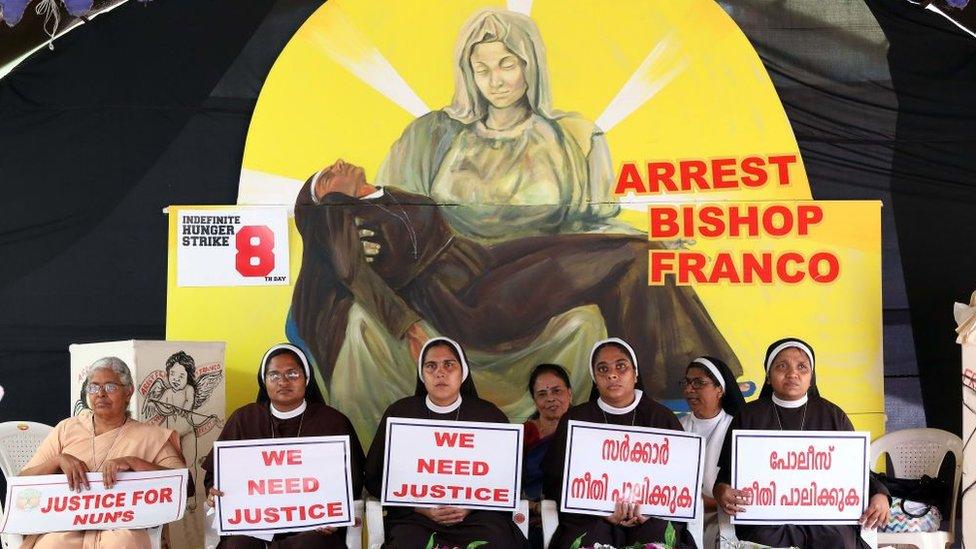
Catholic nuns in Kerala, India, are calling for the arrest of the Rt Rev Franco Mulakkal, of Jalandhar, for alleged rape
In a letter, written by the nun to her superiors, she claimed the first rape had happened in May 2014 and the last in September 2016.
In January, the nuns appealed to the chief minister of Kerala to intervene on their behalf, after Church officials allegedly ordered them to leave the state, in an effort to clean up the mess.
Nuns have complained that they are exploited because they are often reliant upon priests and bishops for their accommodation and fear abandonment if they fight back against abusive clergy.
In Malawi, where HIV prevalence among adults up to the age of 64 is more than 10%, nuns are also alleged to have been targeted because they are regarded as "pure" and much less likely to be carrying the virus.
'Never again' pledge
In 2012, the Australian government announced a Royal Commission, which was charged with investigating institutional responses to child abuse. The organisations involved included residential care centres for young people, schools, sports, arts and other community groups, and the Church.
The commission concluded that 7% of Australia's Roman Catholic priests had allegedly abused children between 1950 and 2010.
In one religious order, the St John of God Brothers, 40% of its leaders were accused of abusing children.
Chrissie Foster, the mother of two children who were abused by priests in Melbourne, complained to the authorities. She told BBC News that instead of addressing her concerns, the family became the subject of a whispering campaign.
"They said that we were liars, that we were after money," she said.
"That's what they would say to parishioners. And parishioners would believe [it] because who would believe that a priest would rape a child? It was much easier to believe that lie than the truth that priests were sexually abusing children."
In August 2018, the Roman Catholic Church in Australia published its formal response to the Royal Commission.
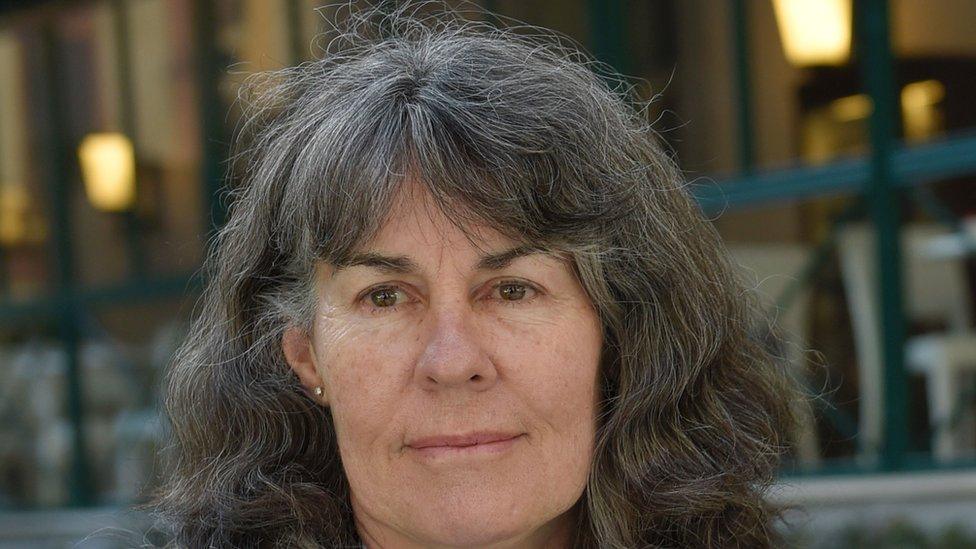
Chrissie Foster is the mother of two children who were abused by priests in Melbourne, Australia
Archbishop the Most Reverend Mark Coleridge, president of the Australian Catholic Bishops Conference, said that "far too many" clergy, religious and lay people within the Church in Australia had "failed in their duty to protect and honour the dignity of all including and especially the most vulnerable, our children and our young people".
"With one voice, the bishops and the leaders of religious orders here this morning make the pledge, 'Never again,'" he said.
'Appalling abuse'
Last summer, Britain's Independent Inquiry into Child Sexual Abuse published a report on two of the most prestigious Roman Catholic schools in the UK: Ampleforth College, in North Yorkshire, and Downside School, in Somerset.
According to the report, the schools "prioritised the monks and their own reputations over the protection of children" and "appalling abuse was inflicted over decades on children as young as seven at Ampleforth and 11 at Downside".
The inquiry heard witness testimony from those who were forced into sexual acts, sometimes in the presence of fellow pupils.
In conclusion, the report found that "many perpetrators did not hide their sexual interests from the children".
"The blatant openness of these activities demonstrates there was a culture of acceptance of abusive behaviour," it said.
Following publication, Ampleforth said the "abbey and college wishes to repeat their heartfelt apology to all victims and survivors of abuse".
Downside expressed similar regret, saying: "The abbey and school fully acknowledges the serious failings and mistakes made in both protecting those within our care and responding to safeguarding concerns."
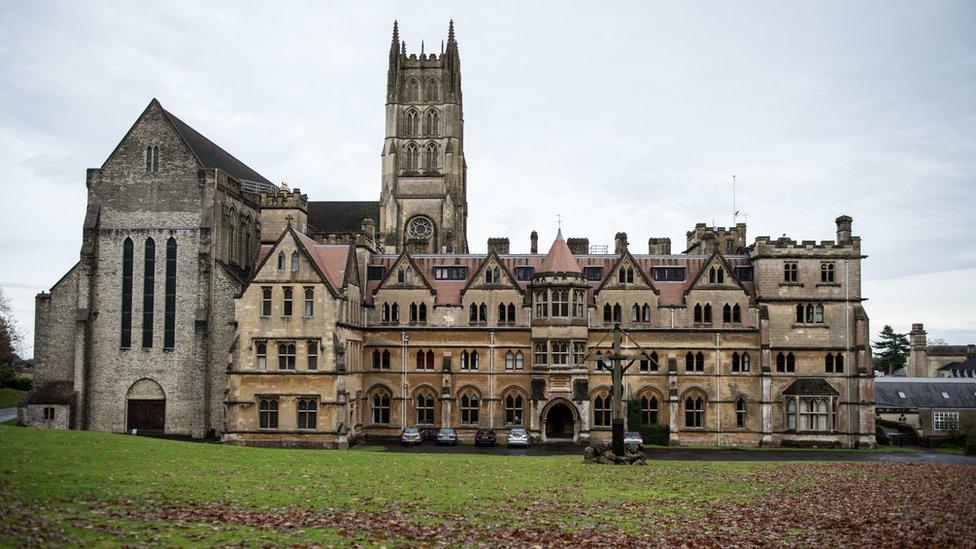
Downside Abbey and school apologised for failing its pupils
For an organisation that numbers more than 1.2 billion adherents and is present in virtually every country on Earth, the focus is now firmly fixed on Pope Francis.
When he was elected, in March 2013, the Pope was fully aware of the impact of clerical abuse scandals on the Church.
Within a year, in July 2014, he met six victims from three countries - two people each from Ireland, Britain and Germany. At a private Mass, with the six victims among the congregation, he offered an explicit apology.
"Before God and his people, I express my sorrow for the sins and grave crimes of clerical sexual abuse committed against you," Pope Francis said during his homily, published later by the Vatican.

A demonstration near the Vatican in support of the victims of paedophile priests
"And I humbly ask forgiveness. I beg your forgiveness, too, for the sins of omission on the part of Church leaders who did not respond adequately to reports of abuse made by family members, as well as by abuse victims themselves."
Soon after, Pope Francis added eight new members to the Pontifical Commission for the Protection of Minors, from Africa, Oceania, Asia, and South America. But this body was soon hit by defections. The only two individuals on the commission who'd been victims of abuse, Marie Collins and Peter Saunders, resigned.
Marie Collins, who was molested by a priest when she was 13, wrote a letter saying that while the Pope may have wanted to address clerical abuse, the Vatican's bureaucracy kept obstructing proposals for change.
After the commission made a recommendation that all correspondence from victims and survivors should receive a response, she discovered that none had received replies.
"I find it impossible to listen to public statements about the deep concern in the Church for the care of those whose lives have been blighted by abuse," she wrote, "yet to watch privately as a congregation in the Vatican refuses to even acknowledge their letters."
She concluded with these words: "It is a reflection of how this whole abuse crisis in the Church has been handled: with fine words in public and contrary actions behind closed doors."
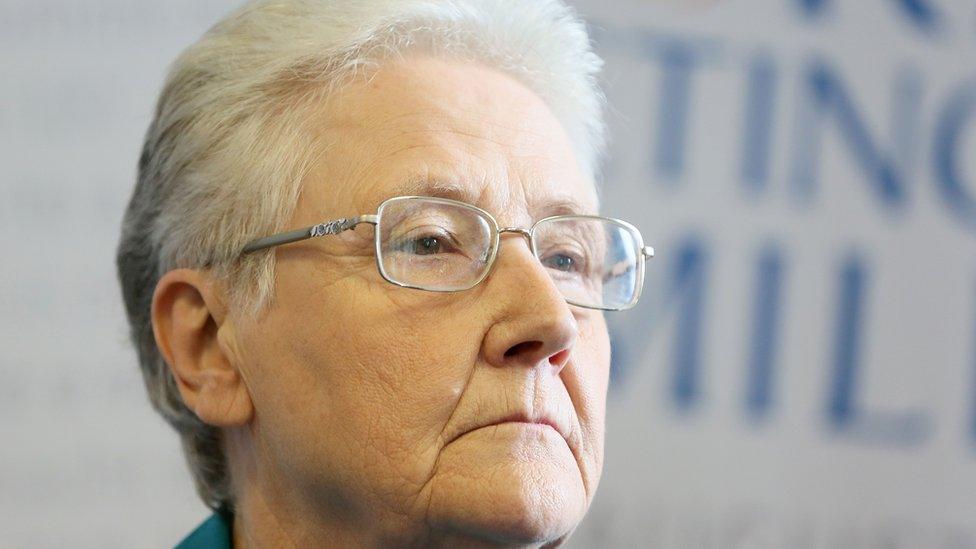
Clerical abuse survivor Marie Collins resigned from the Church's commission for the protection of minors
Pope Francis has decided to open the doors, convening an unprecedented summit to address the issue. But he's already tried to reduce expectations by warning the media, during the flight back to Rome from the United Arab Emirates, that a three-day conference represents only the beginning of a conversation.
Others have argued that he should simply issue an edict for the Church to follow. But implementing universal protocols is challenging because the Church exists in a range of cultures and judicial systems.
It's hard to imagine a more pressing challenge for the 82-year-old pontiff. His pontificate began with widespread enthusiasm for a man who chose pastoral appeal over pomp and ceremony, humility and compassion over the trappings of status.
But how it ends is likely to depend on the action he takes, and the protocols he implements, to deal with the scourge of abuse.
If you have been affected by any of the issues regarding sexual abuse raised in this article, help and support are available. Find out more at BBC Action Line.